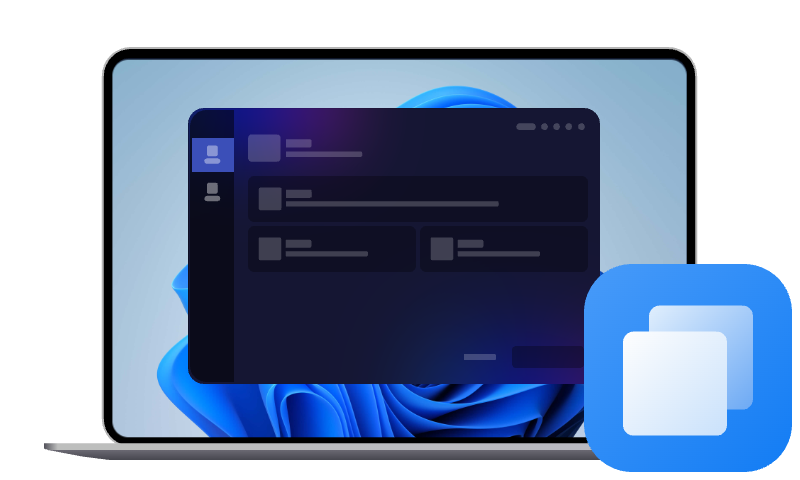Quick Fixes | Acronis True Image Slow Clone on Windows 11/10
Encounter Acronis True Image slow clone issue? Don’t worry. You’ll find why the issue occurs and how to fix the issue quickly here.
Many Windows users have reported painfully slow cloning with Acronis True Image. Here’s an example from a frustrated user:
"I spent all day trying to clone my 1TB HDD to a 1TB SSD using Acronis True Image. The process froze at ‘less than 1 minute remaining’ for over seven hours! I had to restart multiple times, but it kept failing."
- Question from Reddit
It shows that on some Windows PCs and servers, Acronis True Image can severely bottleneck the cloning process, turning what should be a quick disk copy into a frustrating ordeal.
Causes & Quick Fixes for Acronis Slow Clone on Windows 11/10
Generally, Acronis True Image performs on-the-fly disk imaging, but several factors can dramatically slow this process on Windows systems.
#1: Bad sectors on the source drive
Description: If the source drive has corrupt sectors or file system errors, the clone operation may get stuck.
✅Quick Fix: Running chkdsk /for chkdsk /f /r on the source SSD prevents Acronis True Image from repeatedly retrying bad reads.
#2: Connection limitation
Description: Cloning over a slow interface can slow the process. A classic example is using USB 2.0 instead of a faster connection.
✅Quick Fix: Use internal connections (SATA/AHCI). Connect source and target drives via internal SATA 3.0 ports rather than USB or older IDE modes.
#3: Large data cloning
Description: More data takes longer to copy. If your disk is mostly full (hundreds of gigabytes), expect a clone to take significant time even under optimal conditions.
✅Quick Fix: Simply clean up your disk before cloning. You may uninstall unused applications or delete unnecessary files (especially large files) in advance.
#4: Inappropriate cloning method
Description: Acronis True Image is set to copy a disk or partition in a sector-by-sector way when it detects an unsupported or missing file system on the source drive, which means it will clone every sector no matter it is used or not.
✅Quick Fix: Fix or change the file system, or select “Manual” when you’re asked to choose clone mode .You’ll get more control over the cloning procedure.
Above are the most common causes and fixes for Acronis True Image taking long time when cloning. Other causes would be: old or under-powered hardware (like insufficient CPU/RAM, or outdated motherboard), software overhead, or hidden partitions or system files.
You may try these general troubleshooting methods:
- Boot from rescue media: Cloning disk from Acronis’s bootable drive may avoid software conflict.
- Check BIOS/UEFI settings: Disable any SATA controller modes that limit speed. Make sure the system BIOS sees both SSDs at full speed before running Acronis True Image.
- Disable extras during clone: Temporarily turn off antivirus and encryption. If the source or target drive is BitLocker-encrypted, decryption before cloning can help. Avoid having other unused external drives attached – Acronis knowledge base notes that faulty or outdated external disks can slow the process.
- Update firmware and drivers: Ensure SSD firmware is current and motherboard/RAID drivers are the latest.
- Download the latest version of Acronis: Updating to the newest build can improve speed and reliability to some extent.
You may solve the Acronis slow clone issue with the above troubleshooting methods. If persistence issues remain, consider alternative disk cloning software as a final fallback. In practice, once Acronis has proven too slow or unstable, solutions like AOMEI Cloner often complete the same job in a short time.
Fast Disk Cloning Software for Windows PCs/Servers - AOMEI Cloner
For Windows PCs and servers plagued by slow Acronis clones, AOMEI Cloner is a highly-regarded alternative. This tool is built specifically for easy and fast disk cloning on Windows.
A key advantage is its intelligent clone technology– it copies only the used sectors (skipping empty sectors and bad sectors) unless you opt for a full sector-by-sector clone. This “intelligent clone” typically finishes much quicker when the target drive is the same size or larger. It reliably copies all essential boot records (MBR/GPT, BCD, etc.) to make the clone immediately bootable.
It has wide compatibility with different hard drive brands like Samsung, Crucial, WD, Dell, Lenovo, etc., and popular disk interfaces like SATA, M.2 NVMe, IDE, etc.
Basic cloning steps of AOMEI Cloner:
Step 1. Install and run the software. Go to the Clone tab, and then select a mode from Disk Clone, System Clone, or Partition Clone.
Step 2. Select the source drive and the destination drive (all data are overwritten) in turn. Click Next after each selection.
Step 3. Adjust partitions, check the SSD alignment box to boost SSD disk performance (if it is), and then click Start Clone. You can also click Edit Partitions feature in the following two situations.
- The target SSD drive is larger. Select “Add unused space to all partitions or “Manually adjust partition size. The former is recommended as it is adjusted automatically without human intervention and minimizes errors.
- Both drives have different partition styles (one MBR, one GPT). Check the option “Convert the destination disk from MBR to GPT or vice versa to make them identical.
Step 4. Swap drives and reboot from the cloned disk.
FAQs on Acronis Slow SSD/HDD Cloning
1. Why does cloning via Acronis sometimes stall at “less than 1 minute remaining” forever?
This is a common frustration with many cloning programs. Usually, the software is actually copying remaining system data (boot records, small files, final checks) while still reporting “<1 min”. It can appear hung, but it’s often normal. If it truly never finishes, try rebooting into the rescue environment.
2. Should I clone using Acronis under Windows or from bootable media?
Bootable rescue media can sometimes be faster and more reliable since it runs the clone in a minimal environment. If your Windows clone is sluggish or keeps freezing, try the Acronis bootable media method instead.
3. Do I have to disable Windows features like BitLocker or antivirus?
It’s good practice. Encrypting the drive or having active antivirus scans can slow cloning. Decrypt (disable BitLocker) on the source, or pause AV, before cloning. Re-enable them on the new drive after booting.
4. My PC uses RAID or dynamic volumes. Can I still clone?
Acronis True Image and AOMEI Cloner both support cloning on many RAID setups, but you may need to use the correct mode (some enterprise RAID setups might require special procedures). For Windows dynamic disks, ensure you’re cloning to the same disk style (dynamic to dynamic). In complex cases, consider converting to basic disks before cloning.
Free Download
5. Can I clone a larger disk onto a smaller SSD?
Yes – but only if the used data on the larger disk is smaller than the smaller disk’s capacity. Tools like AOMEI Cloner can auto-resize partitions and skip unused space so you can clone 1TB HDD to 500GB SSD.
6. Is there any recovery if a clone fails or hangs forever?
If a clone absolutely will not complete (even after fixes), you may switch to a different tool or method. For example, using Windows’ own wbadmin backup (Windows Server) or third-party alternatives can provide a backup image. But usually, the simplest fix is the one discussed above: use AOMEI Cloner or another dedicated cloning tool that completes the job without stalling.
Conclusion
If you’ve spent hours waiting for Acronis True Image to finish a disk clone, it’s understandable to look for a faster, more reliable solution. For many users on Windows PCs and servers, AOMEI Cloner delivers exactly that.
It handles SSD and HDD clones quickly and smoothly, with an easy one-click wizard and support for both home and server editions. Download to give it a shot.

